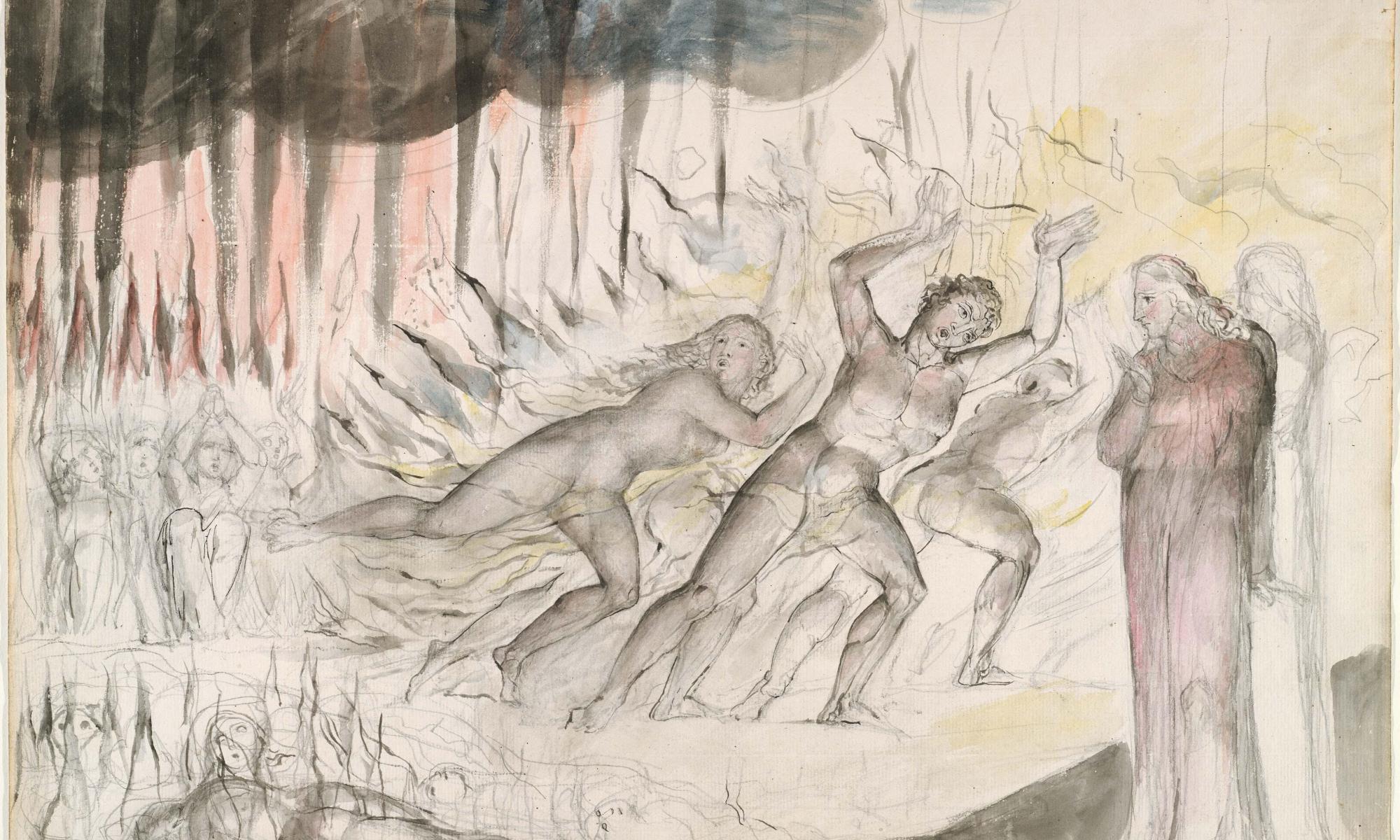Miracles 24/7
In the Christian cultures of the Middle Ages, usury was a mortal sin. It was denounced at the Council of Arles (314 CE), Nicea (325) and Carthage (345), with clergy explicitly prohibited from charging interest. In the 8th century, under Charlemagne, the prohibition was extended to laymen. Further, the third Council of Lateran (1179) decreed that no-one who accepted interest could receive the sacraments or be buried in hallowed ground; and in 1311, the Council of Vienne declared that anyone who said usury was not sinful was a heretic. This effectively nullified all secular legislation that might have licensed the practice. It was a spiritual offence outlawed across all Christendom.
Image: William Blake, Dante and Virgil Among the Blasphemers (from Dante's ‘Divine Comedy’), 1824-27. Watercolor, black ink, graphite and black chalk on off-white antique laid paper, 37 x 52.3 cm. Harvard Art Museums/Fogg Museum, Bequest of Grenville L. Winthrop. © President and Fellows of Harvard College

